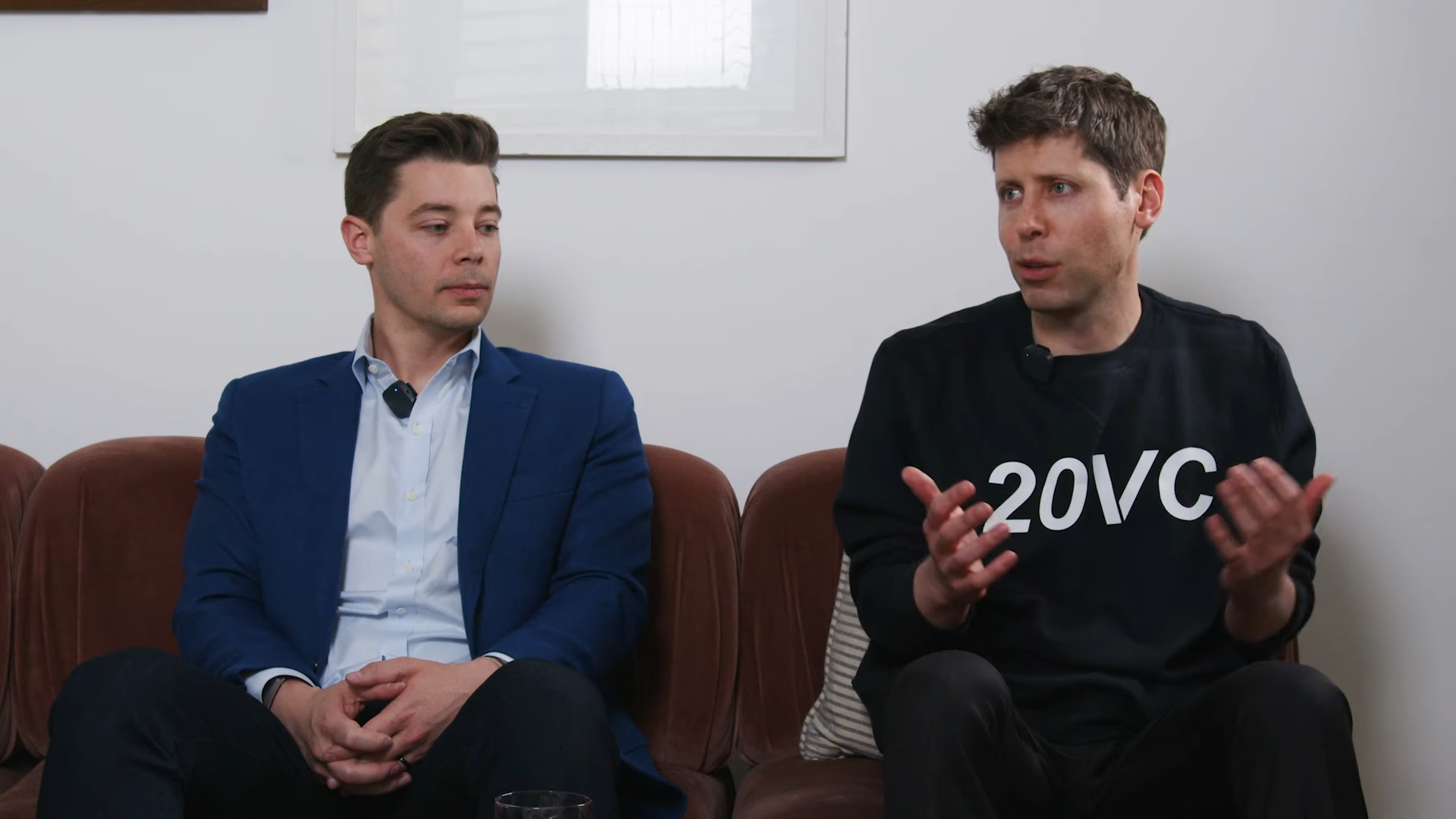Sam Altman explains why OpenAI might steamroll your AI startup

OpenAI CEO Sam Altman has a clear message for startups developing products based on OpenAI's GPTs: They should assume that the models will improve drastically with each new release, rather than relying on the current state of the technology.
According to Altman, startups currently have two choices: They can either assume that models won't get better and build products on current versions.
Or they can count on OpenAI to keep developing the models at the current rapid pace, making them much more powerful with each update.
Altman says 95% of startups should choose the second strategy. But so far, many have taken the first approach.
"When we just do our fundamental job, which is to make the model and its tooling better with every crank, then you get the OpenAI killed my startup meme," Altman says.
Altman uses GPT-4 as an example: Any company that builds something based solely on GPT-4 is likely to be surpassed by GPT-5 if it is as big a leap over GPT-4 as GPT-4 was over GPT-3. Those companies will be "steamrolled" by OpenAI, he says. "Not because we don't like you, but because we have a mission."
You can tell if a startup is on the right track by how it reacts to the possibility of models getting 100 times better, added OpenAI COO Brad Lightcap. Companies that constantly ask for the latest model and want to try it first are probably on the right track.
"There should be a clear path for how better underlying intelligence accelerates that product and that company," Lightcap says. "Most companies can clearly tell that story."
Altman's comments underscore how important it is for AI startups not to settle for the current state of the art. Instead, they need to build products that constantly improve as new models emerge. Otherwise, they risk being left behind at the breakneck speed at which the big tech companies are developing this technology.
AI News Without the Hype – Curated by Humans
As a THE DECODER subscriber, you get ad-free reading, our weekly AI newsletter, the exclusive "AI Radar" Frontier Report 6× per year, access to comments, and our complete archive.
Subscribe nowAI news without the hype
Curated by humans.
- Over 20 percent launch discount.
- Read without distractions – no Google ads.
- Access to comments and community discussions.
- Weekly AI newsletter.
- 6 times a year: “AI Radar” – deep dives on key AI topics.
- Up to 25 % off on KI Pro online events.
- Access to our full ten-year archive.
- Get the latest AI news from The Decoder.